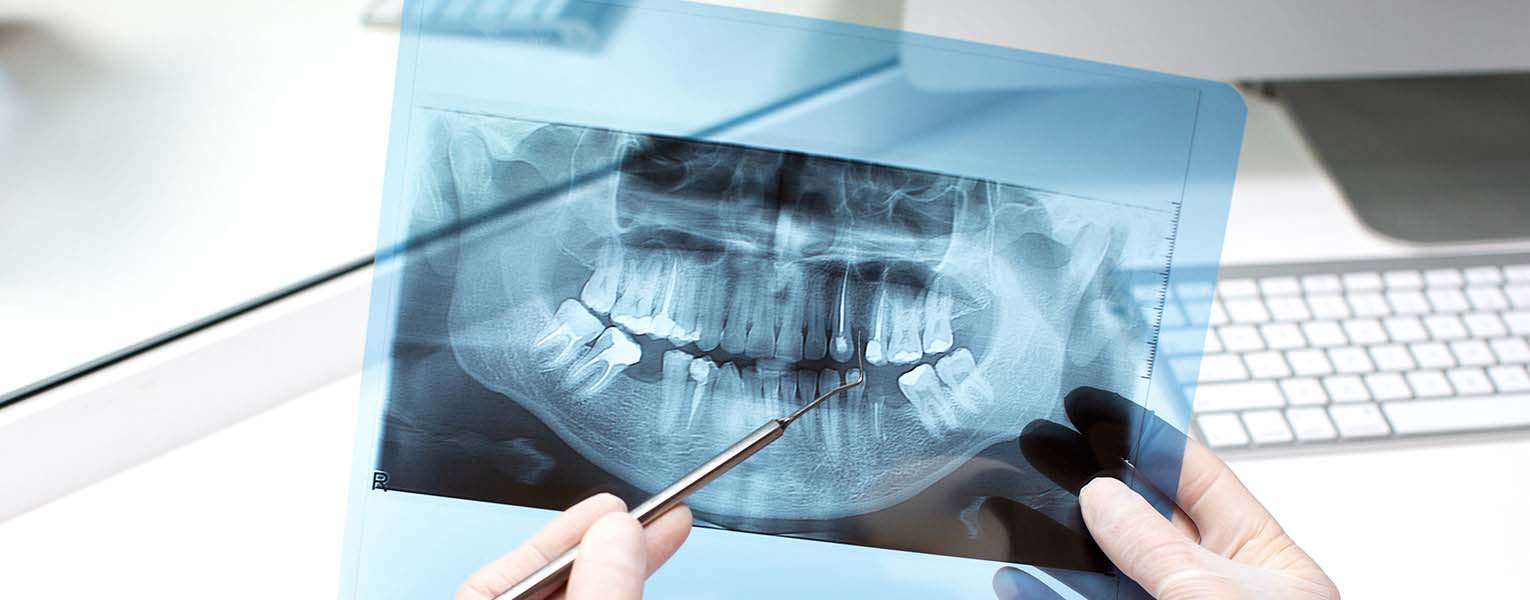What are Impacted Teeth?
The teeth that have not erupted when they should have and remained under gum or bone are called impacted teeth.
Which Teeth Can Be Impacteed?
Wisdom teeth, canines, and premolars can be impactedded. When it is determined that they cannot be brought to their places orthodontically (using braces), they should be removed by jaw surgeons.
When and How Should Impacted Teeth Be Extracted?
Wisdom teeth are located at the very back of the mouth. Since they are located at a point that is difficult to reach and see, brushing and caring for them can be more difficult compared to the other teeth. Due to insufficient brushing, wisdom teeth easily decay, causing pain and bad breath.
In some cases, wisdom teeth cannot erupt because of the lack of space in the jaws. They can remain fully impacted (not seen in the mouth, stay under both the gum and jawbone), or they can become a part of the oral environment by remaining semi- impacted under the gum. In this case, they cause the consumed foods to get stuck and accumulate in the area where they erupt, and thus causing infection. This situation, which causes swelling and redness in the gums around the wisdom teeth, severe pain spreading to the neck and ear, swelling of the lymph gland, and feeling pain while opening the mouth and swallowing, is called pericoronitis.
Fully impacted wisdom teeth, on the other hand, can push the teeth in front of them and create crowdedness (crookedness) in the teeth. In addition, they can cause the decay of the neighboring tooth by pressuring it. impacted wisdom teeth that have not been noticed for many years can cause serious problems by contributing to the formation of cysts that reach large sizes within the jaw.
Even if they do not cause any problems, wisdom teeth may need to be extracted for orthodontic treatment in order to align other teeth properly. For such reasons, wisdom teeth need to be extracted under local anesthesia.
How Should Oral Care and Diet Be After the Impacted Tooth Operation?
Spitting, tooth brushing, vigorous mouth rinsing, using straws, and mouthwash should be avoided on the first day after the extraction. Warm, non-granular, and soft foods should be consumed on the first two days after the operation. After each food consumption and tooth brushing, antiseptic mouthwashes recommended by the doctor should be used. Painkillers and, if recommended by the dentist, antibiotics should be used regularly. You should not smoke for the first 48 hours after the operation as it will disrupt the healing process.
Will There Be a Lot Of Pain After Impacted Tooth Extraction?
After a fast and efficient surgery, there is not much pain, and the pain can be easily controlled with mild painkillers.
Will My Face Swell a Lot After The Impacted Tooth Extraction?
Edema in the cheek depends on the condition of the tooth and varies from person to person. In order to prevent swelling, a cold compress (ice compress) should be applied to the cheek area in the first 24 hours after the operation. Slight swelling is normal and is part of the healing process.
Author of the Article: Dr. Başak Öztemel
